
Over 35 PhD students from the College of Humanities and Social Sciences (CHUSS) have been retooled on academic writing.
The academic writing workshop held on 21st and 22nd April 2022 was organized under the auspices of the CHUSS Center for Research, Teaching and Learning (CERTL) funded by Andrew W. Mellon Foundation..
The workshop was opened by the Director CERTL Prof. Andrew Elias State and officially closed by the Deputy Principal CHUSS, Dr. Eric Awich Onen at the Grand Global Hotel in Kikoni, a Kampala surburb. Over 35 PhD students, mentors and other academic staff attended.
Aspects covered during the training included; Navigating the art and mechanics of scholarly writing at Makerere university presented by Dr.James Taabu Busimba; The role of critical reading, notetaking and citation by Dr. Alfadaniels Mabingo and The Language and style for scholarly communication by Dr. Levis Mugumya. Panelists Prof. Peter Atekyereza, Prof. Paul Omach, Dr. Pamela Kanakwa and Dr. Danson S Kahyana engaged participants on the publishing process, writing, revision, submission, peer review and copy editing.
The Director CERTL who is also Dean, School of Social Sciences Prof. Andrew Elias State said, the center was set up to offer opportunities for the faculty to retool in terms of teaching and learning.
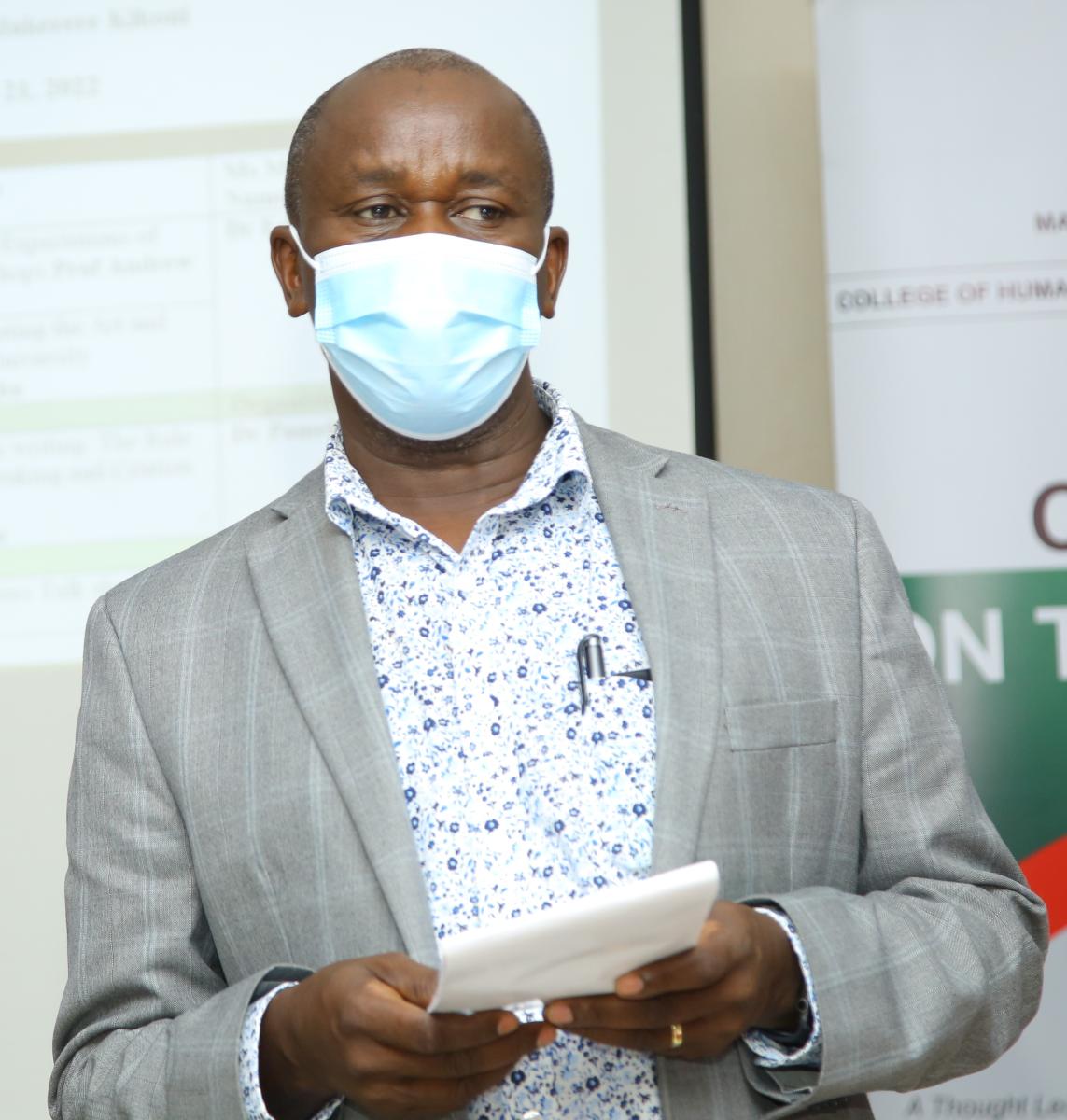
The second objective according to the Director is to provide opportunity for those who have been in the field to review, refresh and grow in the field so that they can get new teaching methods and new ways of handling students in large classes.
“The third objective is to give an opportunity to the graduate students to learn how to write and make reasonable arguments in their writing because part of the commitment is to produce graduate students especially PhDs who can debate but also make valid arguments.
So this is one of those workshops where we gather for the students who have applied to come share their experiences and one of the outcomes we wish to have from students, as a center and the college is that every students should be working on an article for publication”, Prof. Andrew State said.
Prof State said, the center also conducts research on learning and teaching, deals with new academic hires to help them address challenges in handling classes and also learn from the unique experiences from the new staff. The center also organizes writing curriculum for professors and instructors to enrich the curriculum.
CHUSS Coordinator for projects and PhD programs Dr. Edgar Nabutanyi said, the workshop called, “The graduate writing academic workshop”, is a service workshop to PhD students for now which will extend to masters students’ in order to help them write better.
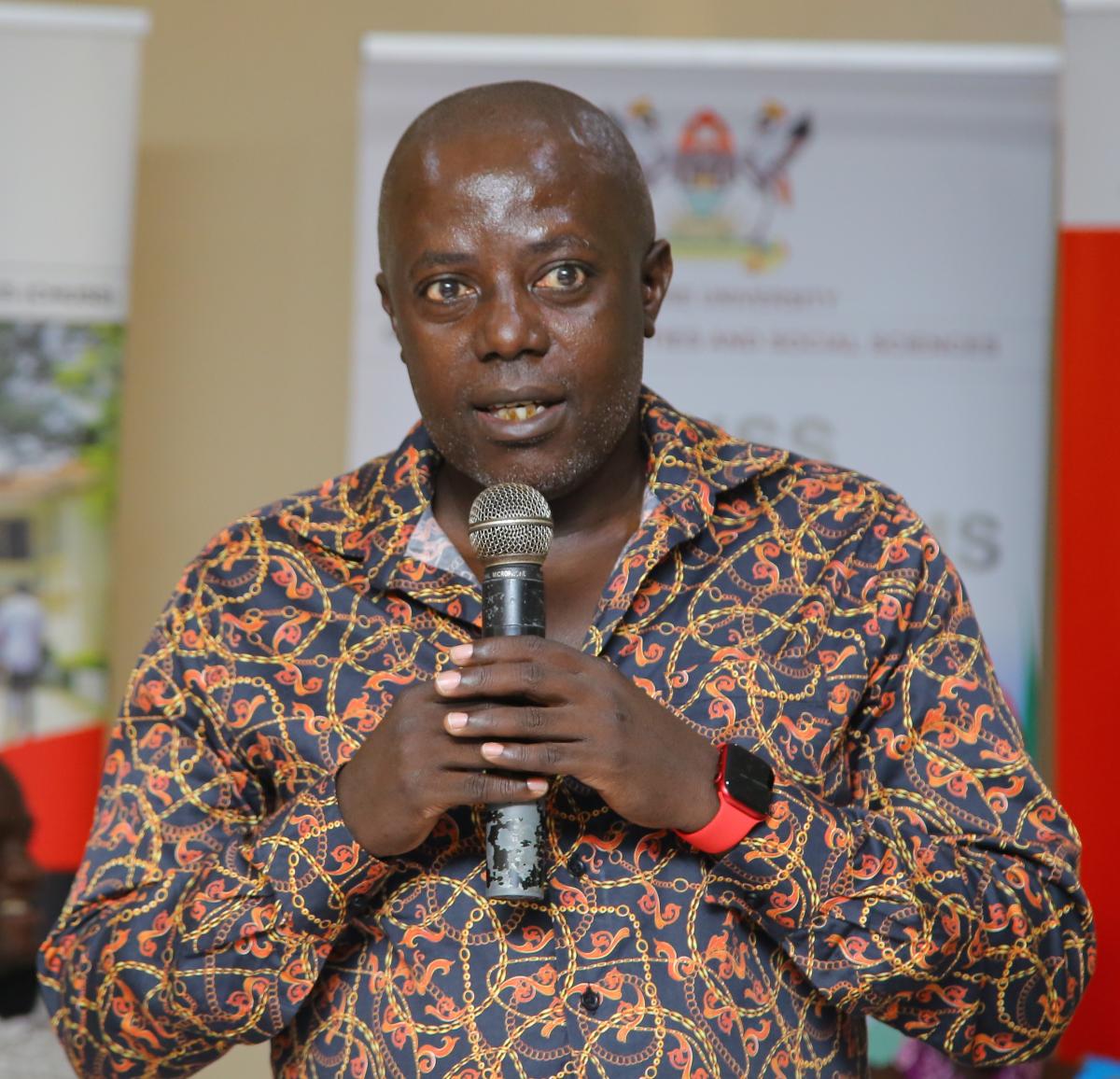
“A student doing PhD or a master’s degree, his or her main output is written material in form of a dissertation, journal articles or book chapters. These are specialized kinds of writings where most students struggle.
So such a workshop is to give them a general theoretical over view of what it involves and how to write a good article but the innovation of CERTL is that we go further than that beyond the theoretical to the practical whereby we pair a student with a mentor and they practically look at a piece that the student has chosen to present.” Dr. Nabutanyi explained.
He said, this workshop is the initial engagement between the student and the mentor and they are supposed to work for about six months until the final product is delivered.
While closing the workshop, CHUSS Deputy Principal Dr. Eric Awich Onen said, the center offers good opportunities for advancing, “The CHUSS on the Move,” agenda.
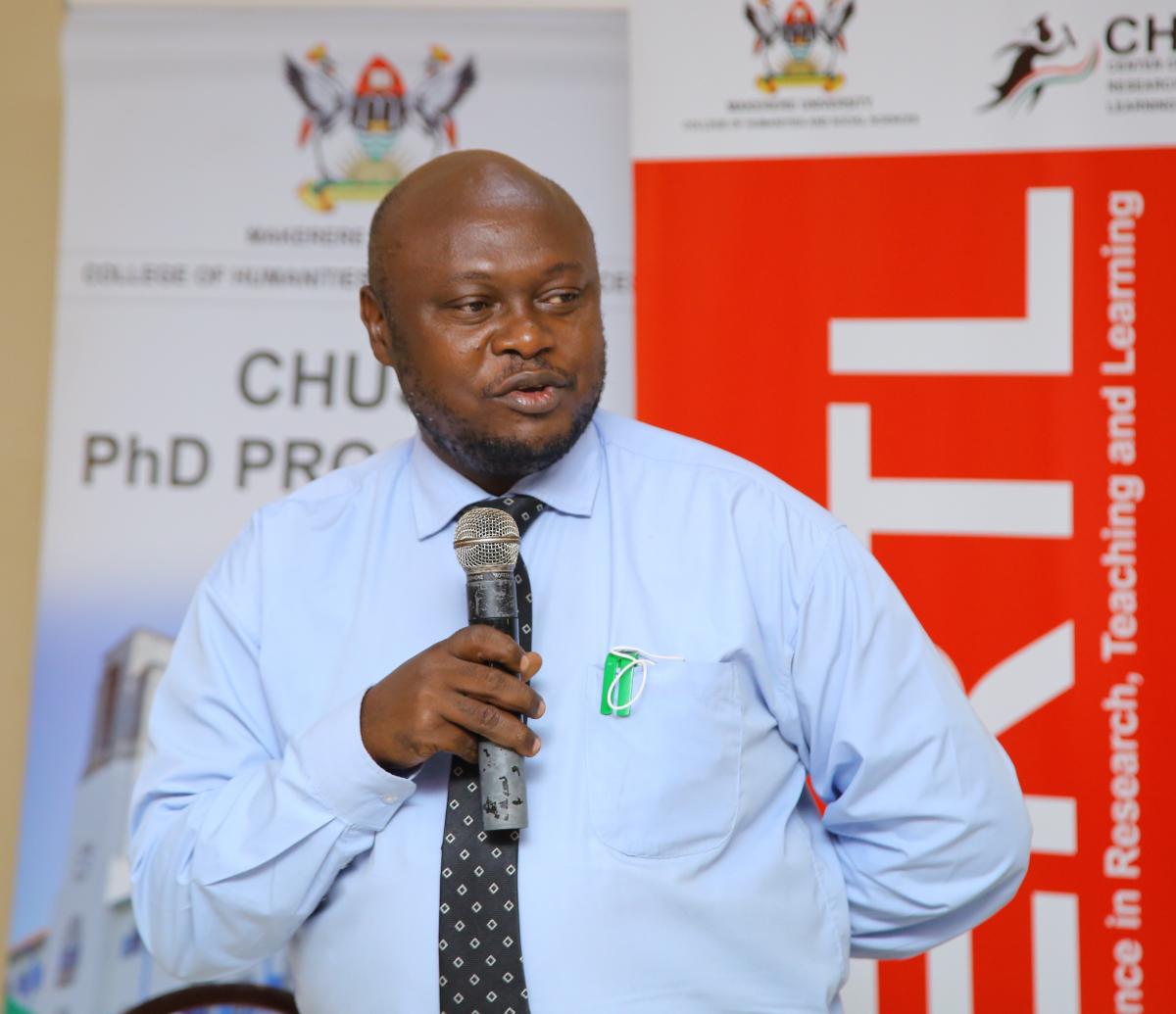
“The CHUSS on the Move agenda,” is about helping CHUSS continue being what we call, “the soul of the university”. CERTL is also helping to market Makerere University out because all of us do this for a major purpose of improving the quality of life of our people in Uganda initially and then because we participate in the global academy as scholars, we contribute to the global academy.
So whatever we actually do informs programming and it is our expectation that it also helps reaching out and improving life situation or wellbeing of global citizens through cutting edge research”, Dr. Awich said describing the discipline of social sciences and humanities as is heart of all global advances.
“Scientists may make contribution in discovering new medicine, vaccines and all that but how we make that vaccine acceptable and increase uptake in the community is upon us in the arts and social sciences. If we don’t do our work well, then whatever new knowledge or discovery by scientists will not make it’s a way to the end user”.
Dr Awich reported that, in the last five years, CHUSS has been receiving more graduate applicants for training both master’s and PhD and new projects bringing on board more graduate students including providing opportunities for the senior staff to advance their research knowledge and mentorship skills.
Awich appreciated the development partners for supporting the university’s general internalization agenda and more specifically, helping CHUSS to reposition itself to support research and scholarship in Uganda.
He encouraged students to work hard and use all the skills acquired noting that, one of the biggest problems mentors should help the students is, how to integrate theoretical frame work and articulate their contributions.
Participants commend the graduate mentorship initiative
Dr. Alfadaniels Mabingo Lecturer, Department of Performing Arts
Dr. Alfadaniels Mabingo , a Lecturer from the Department Performing Arts presented on the practice of academic writing, critical reading, note taking and citation. He emphasized that reading is the biological mother of all forms of academic writing and publication and, therefore, important for students to understand the importance of that aspect.
He pointed out that critical reading starts before one even reads a text, it covers how to select a text, what kind of text you select and that’s when you start framing the kind of critical approaches that you apply when reading a text.
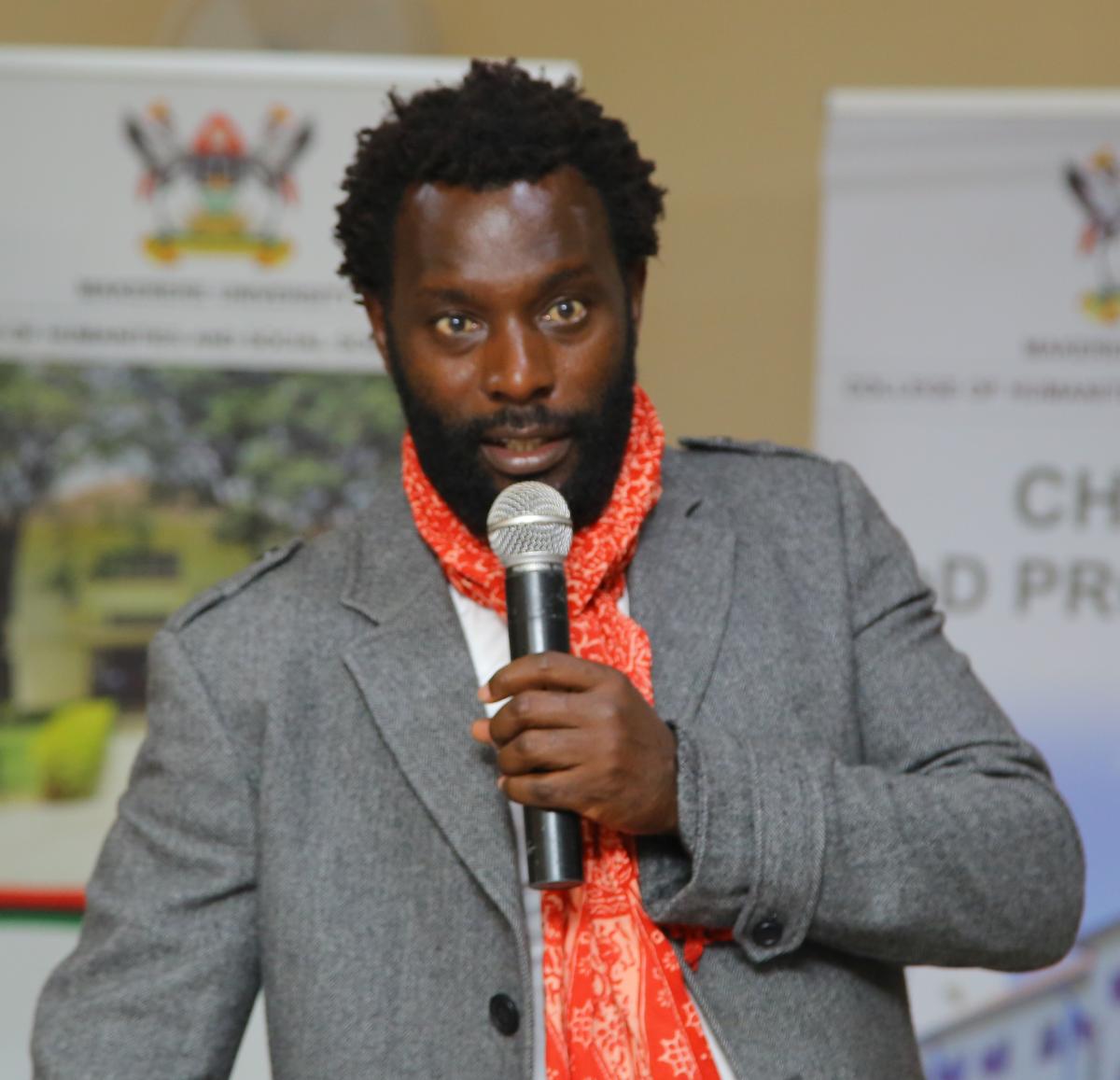
For PhD fellows who are just getting used of the practice, Dr. Mabingo emphasized that reading is very important for them to know because its until you get that critical reading that you can build capability to be able to write, rationalize ideas, build arguments and be able to claim that identity and own niche within a particular field that you are researching about.
“This workshop is very important to PhD holders because at Makerere University we run PhDs by research and so it’s designed in such a way that a student mostly meets with a supervisor. They don’t get opportunity to go out there and get workshops like this, you take them through hands on experiences on how to recite, read critically, and get feedback, present, sort materials for future review.
So the CHUSS through CERTL is doing something very fundamental with support from Andrew W Mellon Foundation and I think this is not just a workshop, it’s something that is going to cause shifts in how PhD education and programs run not only in CHUSS but the whole university because this is very beneficial to students and also us the lecturers because when we come here in a way we sit and present, we undergo some kind of refresher course as well. So I appreciate that I was invited to be part of this”.
Philip Luswata a PhD fellow and popular performing artist and film star
Philip Luswata, a PhD fellow and popular Ugandan performing artist and film star is studying the influences of film pedagogy within indigenous commercial cinema practice. He said,
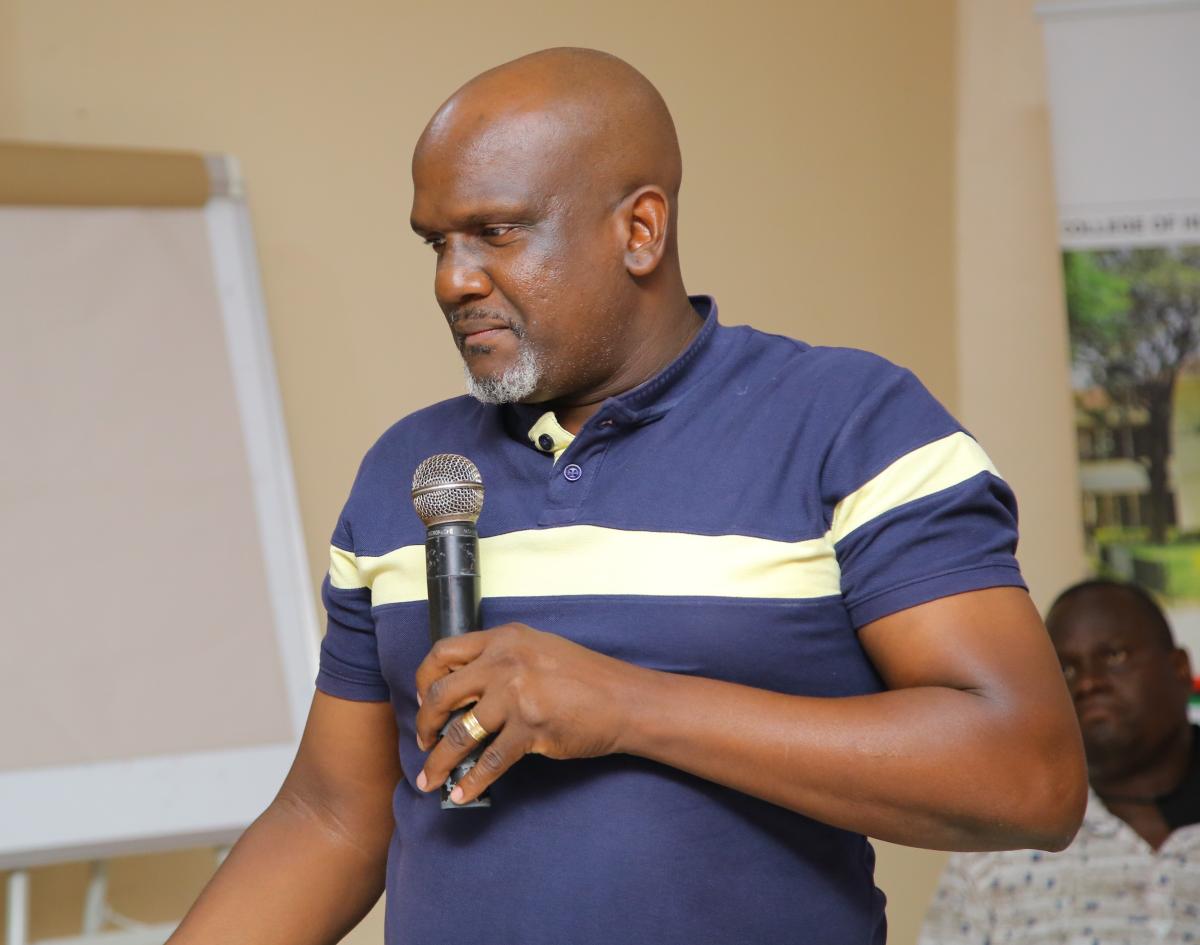
“For me it was super and very relevant because many times, especially on this journey you quit, you cry and reach a point where you feel like I have reached the apex and I know where I am heading and that prepares you for disappointment when you come for comments but when you come for this kind of training, it keeps you sober and the fears am feeling are now less.
What I have is not good, but I am more confident in it and where it is now. I think that’s one thing am picking out from here. I don’t have it yet but am not scared. I have learnt the idea of sharing. You hear other people present and you get that feeling that there are other people struggling like me”.
Abasabyona Milka a second year PhD student
Abasabyona Milka, a PhD student in her second year said, “This workshop was really energizing for me. It has restored hope for some of us who felt like it was too difficult to do the academic writing but, also, we have been introduced to new ideas, the fact that every writing is contextual. Sometimes, I would just look at the theories, the concepts and disregard the context which is very paramount. So that was my take away. And there are many other things I learnt but I can’t mention all of them”.
Mubarak Tukur, PhD student from Nigeria
Mubarak Tukur is from Nigeria and a PhD student at the Department of History working on women and peace in Northern Nigeria. He said,
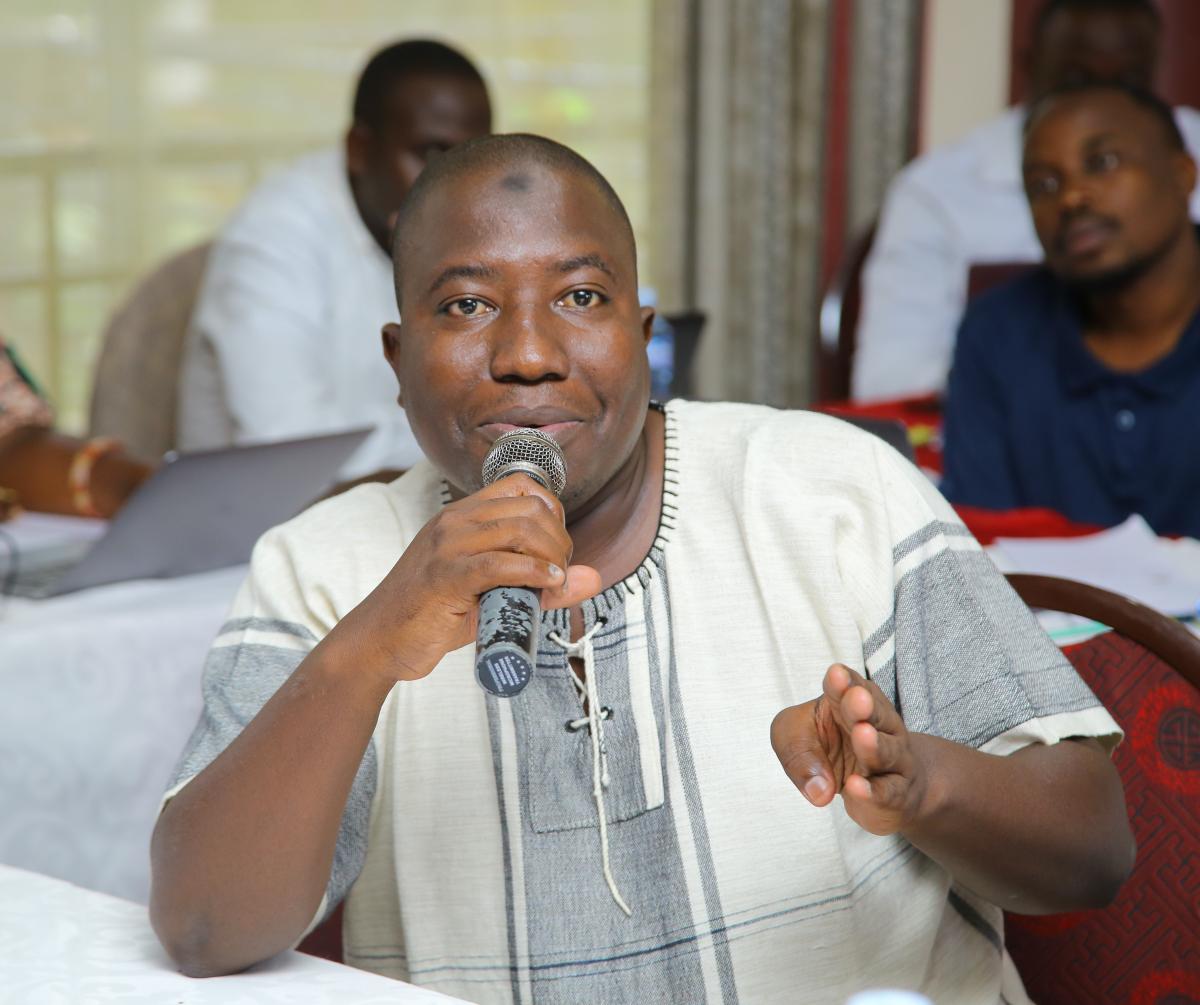
“I am happy to be part of this workshop. I was always dreaming and checking whether they sent me an invitation for this workshop. I knew the workshop would help me in my data analysis and prepare me for a publication. The training has been very helpful and it has sharpened the way I will present my presentation. I am grateful for the CHUSS leadership for initiating this kind of training”.
